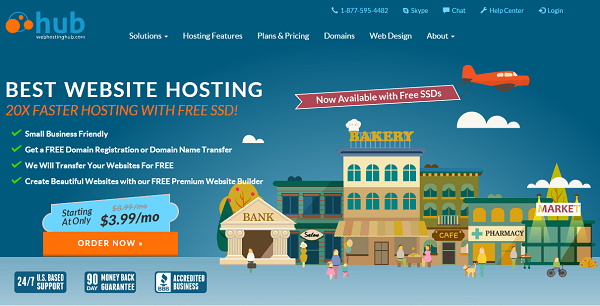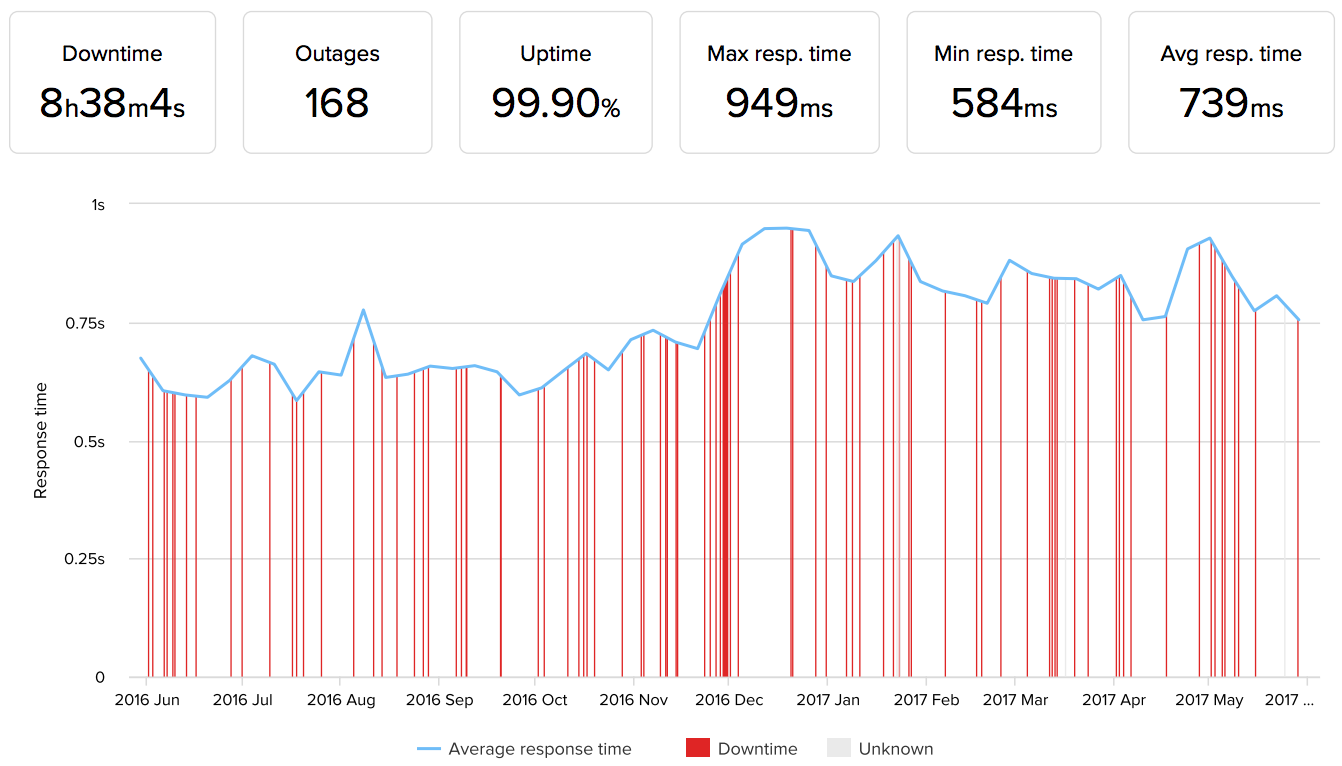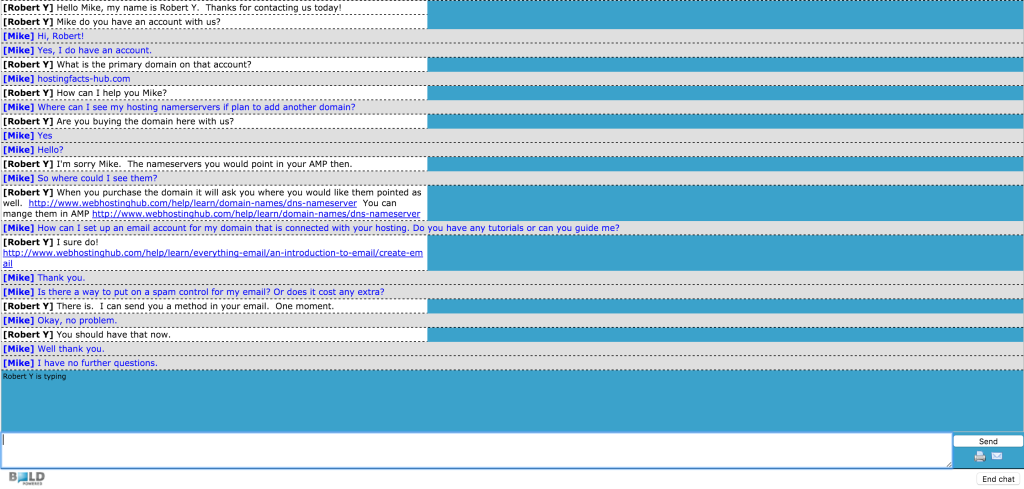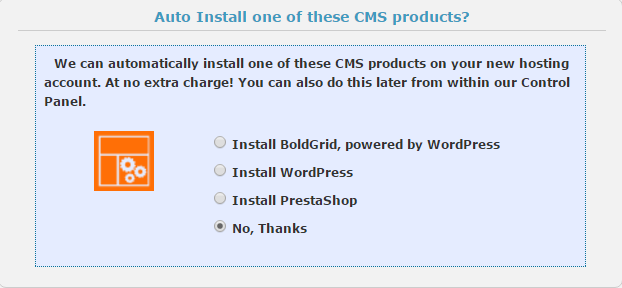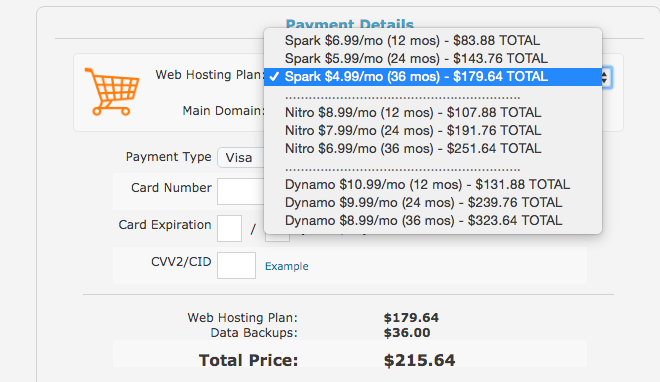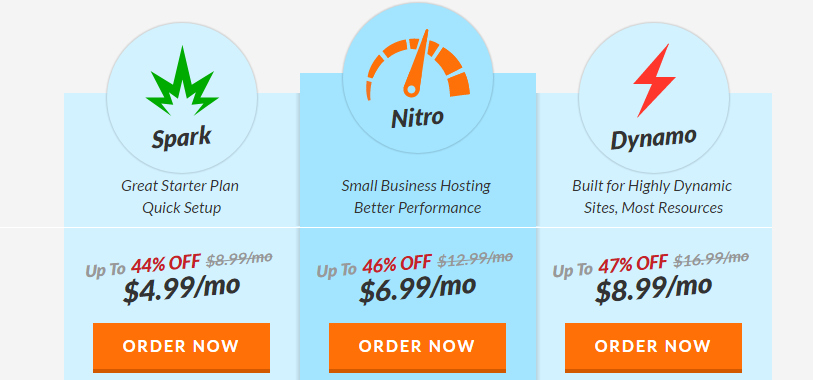What is LunarPages?
Lunarpages is one of the oldest web hosts in existence.
Starting from humble beginnings in a garage in California (isn’t that how this story always goes?!) in 1998, to growing a customer base of over 150,000 people, including clients such as Microsoft, BlackBerry, Cisco, Sony, Caesar’s Entertainment, and more.
They were founded by Maximillian Andersen and Ron Riddle, a Harley Davidson-riding former brick mason (yes, you read that right).
Today, Lunarpages has data centers in California, Arizona, and Nevada.

A quick glance at that illustrious client list gives you the impression they know what they’re doing. So, do they?
To find out, we set up a basic WordPress website on the Lunarpages ‘Starter Web Hosting Plan’ in June 2015. Since then, we’ve been analyzing performance like uptime & speed (click “History” to see the data for yourself).
Here’s what we found.
Pros of using LunarPages Hosting
Lunarpages has a few great things going for it. Speed, for one. Nightly backups too. Here’s a snapshot.
1. 32% Faster Page Loads than Competition
Lunarpages came out of the gate with average page loading times of 801ms, about 32% faster than the average 1185ms we’ve seen.
That’s important, because speed also had a huge bearing on other factors like where you rank in search engines and the number of people converting on your site (in addition to the obvious user experience).
2017:
- January average speed: 841ms
- February average speed: 867ms
- March average speed: 883ms
- April average speed: 804ms
- May average speed: 745ms
- June average speed: 727ms
- July average speed: 802ms
- August average speed: 778ms
- September average speed: 759ms
- October average speed: 836ms
- November average speed: 797ms
- December average speed: 768ms
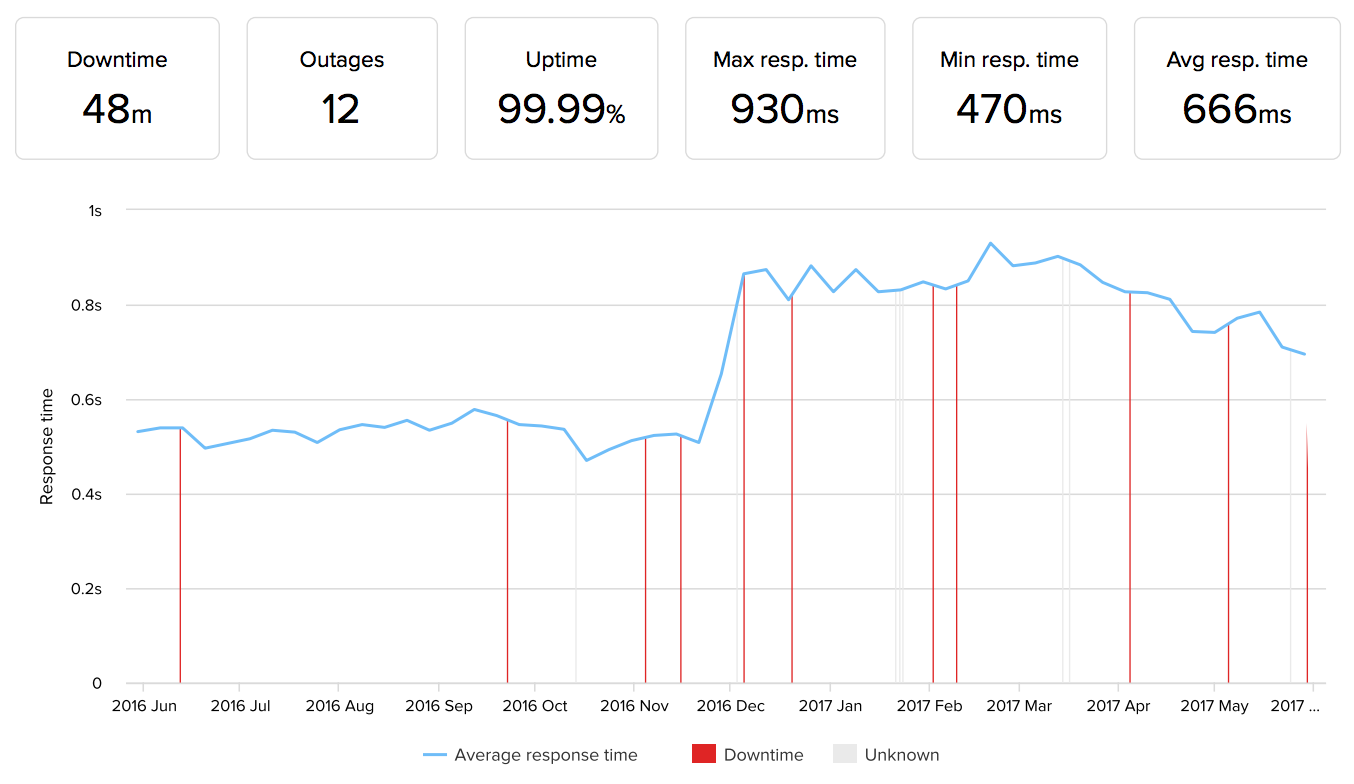
LunarPages: Page Load Speed and Uptime (Last 12 months, full data can be found here.)
2. Premium Backup & Restoration Service
Your site is almost finished.
You just need that one extra plugin to power that special functionality you’re lacking.
Problem is, it doesn’t play well with others. The minute you hit ‘install’, the screen goes white. And… nothing.
This is an all-too-familiar occurrence for most site owners, as different third-party tools (like plugins) don’t play well together.
The good news, is that Lunarpages will run automated nightly backups of your server. Their Premium Restore Service will also restore files for you — on a priority basis — and at no cost.
3. No Pricing Games on ‘Starter’ Plan
Many web hosts will play this game of offering a low monthly rate on their website, only to reveal the real terms of that pricing in the final checkout process.
Often, you’ll have to purchase three years, upfront all at once if you’d like to lock that low pricing in. And many times, upon plan renewal, your pricing will jump back up to the ‘normal’ rate (which can sometimes be 2x the price!).
While Lunarpages doesn’t offer a true month-to-month plan (which is kinda a bummer), their Starter ‘monthly’ pricing is the same for 12 months as it is for 24 months.
4. Free Domain Name & Site Migration
Some of Lunarpages’ plans come with a free domain name registration (that needs to be redeemed within 30 days of signup). Please note that like other hosts, this only covers the first year of the domain name (and any renewals will come out of your pocket).
And if your existing website is currently being hosted somewhere else, Lunarpages will help you transfer it to their servers for free.
5. 30-Day Money Back Guarantee
Lunarpages’ plans are also backed by a standard 30-day money back guarantee.
6. Offers great up times – 99.99%!
Since we signed up with LunarPages they have offered very good and reliable up times. The up times been very stable. The worst we’ve seen by them is 99.98%, which is way much better than our industry average(99.79%).
Page loading speeds have gone really bad by LunarPages, but they still offer one of the best up times in the industry. Holding our website on 100% 5 times out of 12 in the last 12 months.
Overall, their average uptime is .20% better than the industry average uptime of 99.79%.
2017:
- January average uptime: 100%
- February average uptime: 99.98%
- March average uptime: 100%
- April average uptime: 99.99%
- May average uptime: 99.98%
- June average uptime: 100%
- July average uptime: 100%
- August average uptime: 100%
- September average uptime: 99.98%
- October average uptime: 100%
- November average uptime: 100%
- December average uptime: 100%
Cons of using LunarPages Hosting
Lunarpages provided great page loading times and fantastic uptimes. They also threw in a few helpful features.
Unfortunately, though, there are some grievances we can’t overlook. Here are the grim details.
1. Slow, Limited Support Options
Almost every other host we’ve reviewed provides a HUGE variety of ways to get in touch with them for fast customer support.
Almost every single one offers live chat for instance, so you can reach out and get in touch ASAP if there’s a problem.
After all, responding to issues quickly and efficiently to keep your site up-and-running is an integral part of what you’re paying them for.
Lunarpages has live chat… but it’s only available for sales – not customer support. The only way we could reach out to them was through their archaic ticketing system.
Their ticketing responses were great, but it took 12 hours to hear back from them!
That’s a LONG time on the internet, and if a website was down and not making money during that entire 12-hour window, it could have serious ramifications for many businesses.
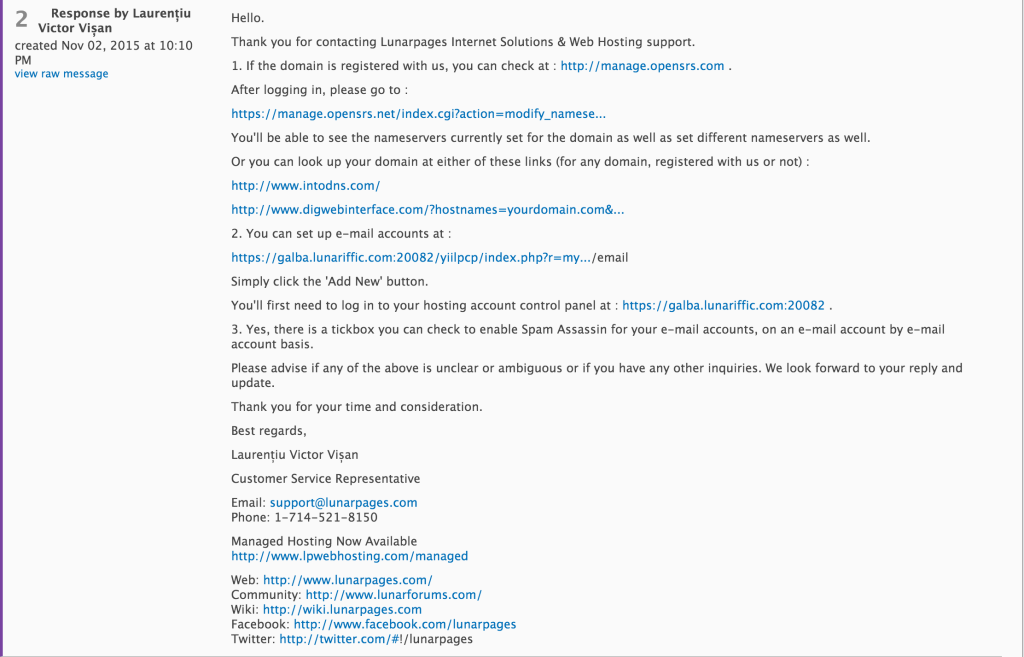
A background check revealed that many existing customers were also not very satisfied with their support either.
2. Poor Website Experience
Lunarpages was founded back in 1998 and honestly, it seems like their website hasn’t been updated very much since then.
It’s difficult to navigate and find helpful (read: usable) information. Most of the content on their site is very technical and unusuable for many outside of IT (read: the majority of their Shared hosting customers).
Overall, finding what you need on their site is a very frustrating, tedious process.
3. Setup Fee!
Almost all the companies we’ve reviewed (going on ~30 now) will help you setup your site for free.
But not Lunarpages, who will charge you a fee.
4. They Charge for cPanel
cPanel access on most shared hosting plans is almost a given, considering it appears literally everywhere and is pretty standard.
But Lunarpages will charge you for it if required. It’s only two bucks a month, however, this is still a complementary feature with most other hosts.
5. Possibility of User Suspension
Most hosts promise ‘unlimited’ features. But that’s rarely the case.
Lunarpages is no different, with our research uncovering that users can be suspended due to ‘high resource usage’.
While their server configuration reasons might be valid, it would still come as quite a shock to wake up one morning, attempt to login to your website and notice that your site’s been suspended with no notice.
6. Expensive Pricing Tricks on Basic Hosting Options
It seems like just a minute ago we were singing Lunarpages’ praises because of no pricing games on their ‘Starter Plan’.
Unfortunately, these do show up on their Basic Website Hosting, which is considered a ‘step-up’ from their Starter Plan.
It’s also worth noting that the pricing for the Basic plans, relative to other companies, is expensive.
LunarPages Pricing, Hosting Plans & Quick Facts
Shared Hosting: Here’s an overview of their shared hosting plans:
- Windows Web Hosting: Their “Windows” web hosting starts at $9.95 per month. It comes with unlimited storage, unlimited bandwidth, unlimited email accounts, unlimited MySQL databases, and unlimited sub domains. It comes with Plesk Control Panel included.
- Starter Web Hosting: Their “Starter” hosting starts at $4.95 per month. It comes with 5GB storage, 50GB bandwidth, 1 MySQL database, 5 email accounts, unlimited sub domains and a free site seal.
- Basic Web Hosting: Their “Basic” hosting starts at $4.95 per month and includes unlimited storage, unlimited bandwidth, unlimited email accounts and unlimited MySQL databases. It also comes with a free domain name. You need to pay for 60 months at once to enjoy the $4.95 per month rate: the minimum term you can pay for is three months, which costs $10.95 and a $30 setup fee.
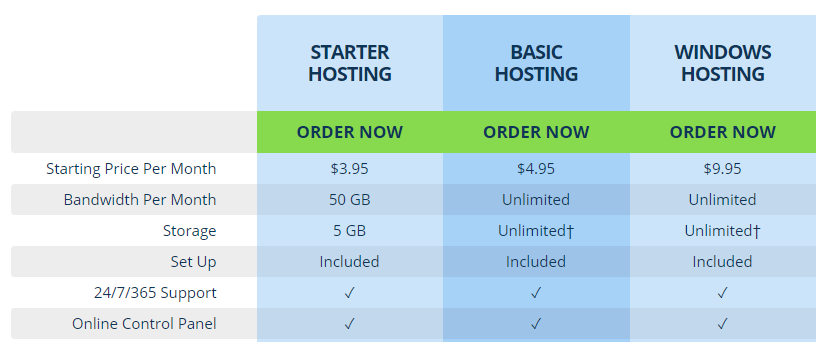
- Free Domain: Yes.
- Ease of Signup: Lengthy signup process.
- Payment Methods: Credit Card, PayPal, Alipay, Check, Money Order.
- Hidden Fees and Clauses: An account may be suspended if it is using “too many server resources.” Unfortunately, they do not seem to explain what they mean by “too many server resources” anywhere on their site.
- Upsells: Lots of upsells.
- Account Activation: Quick activation.
- Control Panel and Dashboard Experience: cPanel. Which you have to pay for.
- Installation of Apps and CMSs (WordPress, Joomla, etc.): Quick and easy installation of popular apps and CMSs with Softaculous.
Get Lunarpages Now.


